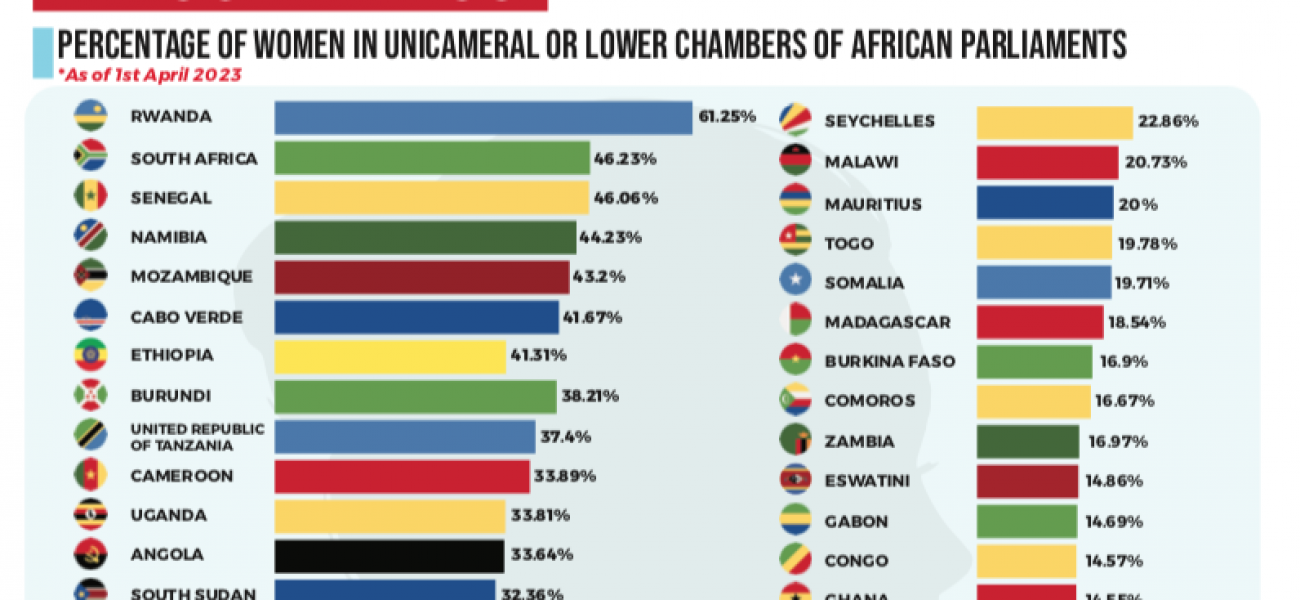The 2023 general elections again, delivered low numbers for women in the National Assembly. The representation of women in the incoming Assembly is not a significant improvement from the outgoing 9th Assembly. The 10th Assembly will have women occupying 3 out of 109 seats (2.7%) in the Senate and 17 out of 360 seats in the House of Representatives (4.7%), which represents 4.2% of the 469-member Assembly. In the 9th National Assembly, there were 8 female Senators (7.3%) and 13 female Members of the House of Representatives (3.6%), which represents 4.5% of the entire Assembly. After seven general election cycles since 1999, the number of women in the Senate has dropped to what it was at Nigeria’s return to democracy in 1999.
With current figures for the 10th National Assembly, Nigeria remains at the bottom of the list in the ranking for the number of women in African Parliaments. The Inter-Parliamentary Union (IPC), which usually provides this information is yet to update its data on Nigeria due to the recent general elections. However, as of April 2023, the lowest ranking countries have 8.62% of women in unicameral or lower chambers of Parliament and 6.67% in upper chambers of Parlaiment, respectively. The cumulative percentage of women in the two chambers of Nigeria’s incoming 10th National Assembly is below 5%. It is also important to note that no woman was elected in 15 out of Nigeria’s 36 State Houses of Assembly following the State level general elections in March 2023.
Conversations to improve women’s political representation have been on the front burner of civil society advocacy but does not appear to have yielded tangible results. A novel Constitution Alteration bill to provide specific legislative seats for women at Federal and State levels did not pass in the National Assembly. However, civil society organisations (CSOs) and women’s rights campaigners are braced for renewed campaign on the matter. The groups argue that this time, the National Assembly must take action to support increase in the number of women represented in government by passing specific Constitution Alteration bills to achieve this. It is to be noted that the Temporary Special Measures bill which was debated but failed to pass in the 9th Assembly had Hon. Nkeiruka Onyejeocha as lead sponsor and more than 80 other House of Representatives Members co-sponsoring it. Policy and Legal Advocacy Centre (PLAC) had prepared the bill and is looking forward to continuing work on the bill in concert and consultation with other CSOs and women groups as the 10th National Assembly gets inaugurated.

